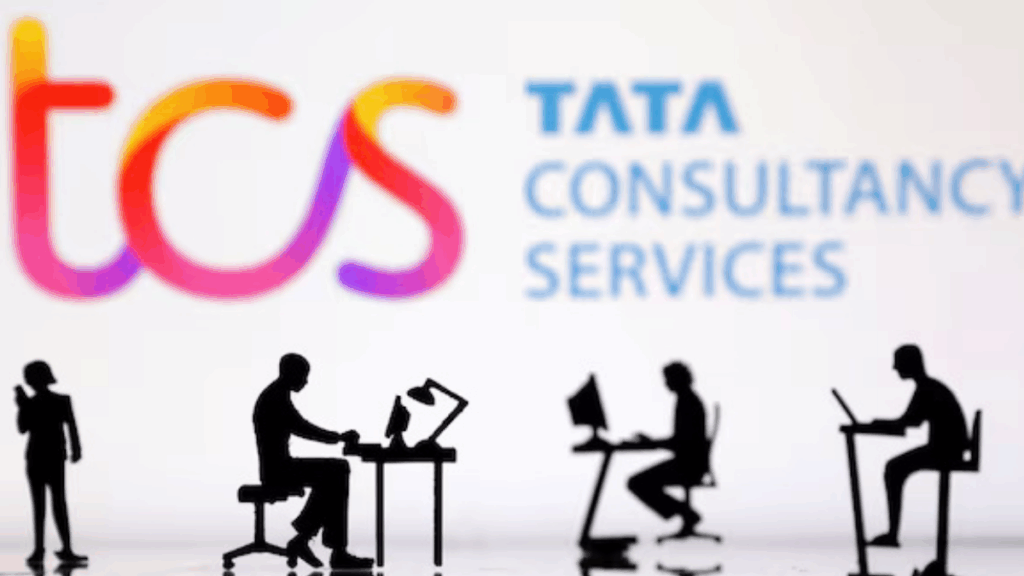The tech industry is facing another wave of layoffs, and TCS’s announcement to cut 12,000 jobs has sent shockwaves through the sector. But before you blame AI for taking over human roles, the reality is far more complex than many realize.
When TCS announced plans to reduce its workforce by 2% in July 2025, affecting approximately 12,000 employees, the immediate assumption was that artificial intelligence had finally reached the tipping point where machines were replacing humans en masse. However, CEO K Krithivasan was quick to clarify that these cuts aren’t driven by AI automation delivering sudden productivity gains.

The truth behind these layoffs reveals a deeper transformation happening across the tech landscape one that goes beyond simple automation and touches on fundamental shifts in how technology companies operate and what skills they value.
The numbers tell a stark story
Tech layoffs have become a defining feature of the industry since 2022. According to tracking website Layoffs.fyi, 169 tech firms shed over 80,150 workers from January to mid-July 2025 alone. That’s on top of 152,922 layoffs in 2024 and 264,220 in 2023.
TCS’s decision to cut 12,000 positions primarily targeting middle and senior-level employees adds to this mounting tally. With a global workforce of 613,069 as of June 2025, the company is making what Krithivasan called “one of the toughest decisions” he’s had to make.
But these aren’t just numbers on a spreadsheet. Each layoff represents a professional whose skills may no longer align with rapidly evolving industry demands, despite extensive retraining efforts.
Skills mismatch drives the cuts
The primary driver behind TCS layoffs isn’t AI replacing workers, it’s what the company calls a “skills mismatch.” Despite training over 550,000 employees in basic AI skills and more than 100,000 in advanced capabilities, TCS has struggled to redeploy all of these workers effectively.
“Some people, especially at senior levels, find it difficult to transition to tech-heavy roles,” Krithivasan explained. This challenge reflects a broader industry problem: the gap between existing employee capabilities and the skills needed for emerging technologies.
The company is also shifting from traditional “waterfall” project management methods toward agile, product-centric delivery models. This transition reduces demand for conventional project managers and eliminates multiple leadership layers that were necessary under older operational structures.
Economic pressures compound the challenge
While skills mismatch drives TCS’s specific decisions, broader economic forces are reshaping the entire tech sector. Rising inflation, increased interest rates, and supply chain concerns have forced companies to prioritize efficiency over growth.
The pandemic initially created a hiring boom as digital transformation accelerated. Companies like Meta, Google, Amazon, and Microsoft nearly doubled their headcounts between 2020 and 2022, expecting continued rapid expansion. When growth slowed and borrowing costs increased, many found themselves overstaffed.
According to KPMG research, the average cost of debt for companies has risen 60 basis points, while weighted-average cost of capital increased 40 basis points in just one year. These financial pressures make workforce optimization a strategic necessity rather than a choice.
AI creates winners and losers
Although AI isn’t directly causing the TCS layoffs, it’s fundamentally changing which roles have value. Consultancy Bain estimates that AI displacement risk is three times higher for high-earning software professionals ($200,000+ annually) compared to lower-paid warehouse workers.
Microsoft reports that roughly 30% of code is now AI-generated. Tasks that once required teams of mid-career professionals from HR paperwork to customer service responses can now be handled by large language models in minutes.
However, the same companies cutting jobs are also spending millions to acquire top AI talent. Meta, Google, and OpenAI offer compensation packages exceeding $100 million annually for leading AI researchers. This creates a stark divide between those with cutting-edge AI skills and those whose expertise is becoming obsolete.

What this means for tech workers
The current wave of layoffs differs from previous downturns because it targets experienced, well-compensated professionals alongside routine roles. Unlike the dot-com crash or 2008 financial crisis, these cuts aren’t just about economic correction they reflect permanent structural changes in how technology work gets done.
For tech professionals, this shift demands continuous learning and adaptation. Traditional career paths that relied on accumulated experience in specific technologies or management approaches may no longer provide job security.
Companies are seeking employees who can work with AI tools, adapt to agile methodologies, and contribute to product-focused teams rather than traditional project hierarchies. The professionals who thrive will be those who can bridge technical skills with strategic thinking and continuous learning.
Preparing for the future of tech work
The TCS layoffs offer important lessons for anyone working in technology. First, technical skills alone aren’t sufficient and professionals need to demonstrate adaptability and willingness to embrace new working methods.
Second, continuous upskilling has become essential, not optional. Companies may provide training, but individuals must take ownership of their professional development and actively seek opportunities to work with emerging technologies.
Third, understanding business context matters more than ever. As companies move toward product-centric models, employees who can connect technical capabilities to business outcomes will be most valuable.
Finally, building diverse skill sets provides protection against obsolescence. Rather than specializing narrowly in specific technologies or management approaches, professionals should develop complementary capabilities that remain relevant as the industry evolves.
The road ahead for tech employment
McKinsey estimates that generative AI could add $4 trillion to global GDP annually by 2030, but this growth will require massive workforce transformation. The companies and individuals who successfully navigate this transition will be those who can shed routine work while focusing on tasks that still require human judgment, empathy, and creativity.
The TCS layoffs represent more than a single company’s workforce optimization and they’re a preview of how the entire tech industry is restructuring around new technologies and working methods. While this creates uncertainty for many professionals, it also presents opportunities for those willing to adapt and grow with the changing landscape.

The key is recognizing that this transformation is permanent, not cyclical. Rather than waiting for conditions to return to previous norms, tech professionals must embrace the reality that continuous learning and adaptation have become core job requirements in an AI-driven industry.
FAQs About TCS Layoffs 12000 Employee 2025
Q. Why is TCS cutting jobs in 2025?
A.TCS is cutting jobs due to a significant skills mismatch. The company has identified a gap between the skills its workforce possesses and the skills required to meet future demands, particularly in AI and emerging technologies.
Q. Are these layoffs related to AI automation?
A. No, these layoffs are not directly tied to AI automation. The primary cause is the inability of certain employees to adapt to the rapidly changing skills required in an AI-driven industry.
Q. How can tech professionals avoid being affected by layoffs?
A. The best way to mitigate the risk of layoffs is to invest in continuous learning and upskilling. Staying updated with industry trends, mastering new technologies, and acquiring in-demand certifications are key to remaining competitive.
Q. Is TCS the only company implementing layoffs?
A. No, many tech companies are facing similar challenges and restructuring their workforce. The entire industry is undergoing a transformation driven by technological advancements and a need for specialized skill sets.
Q. What is TCS doing to support laid-off employees?
A. TCS has reportedly established transition programs to help affected employees. These include career counseling, upskilling opportunities, and assistance in finding new job opportunities within or outside the company.
Click HERE For More
